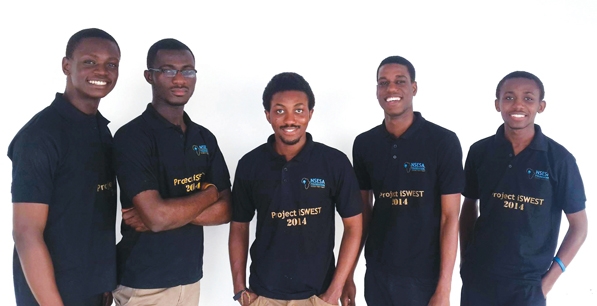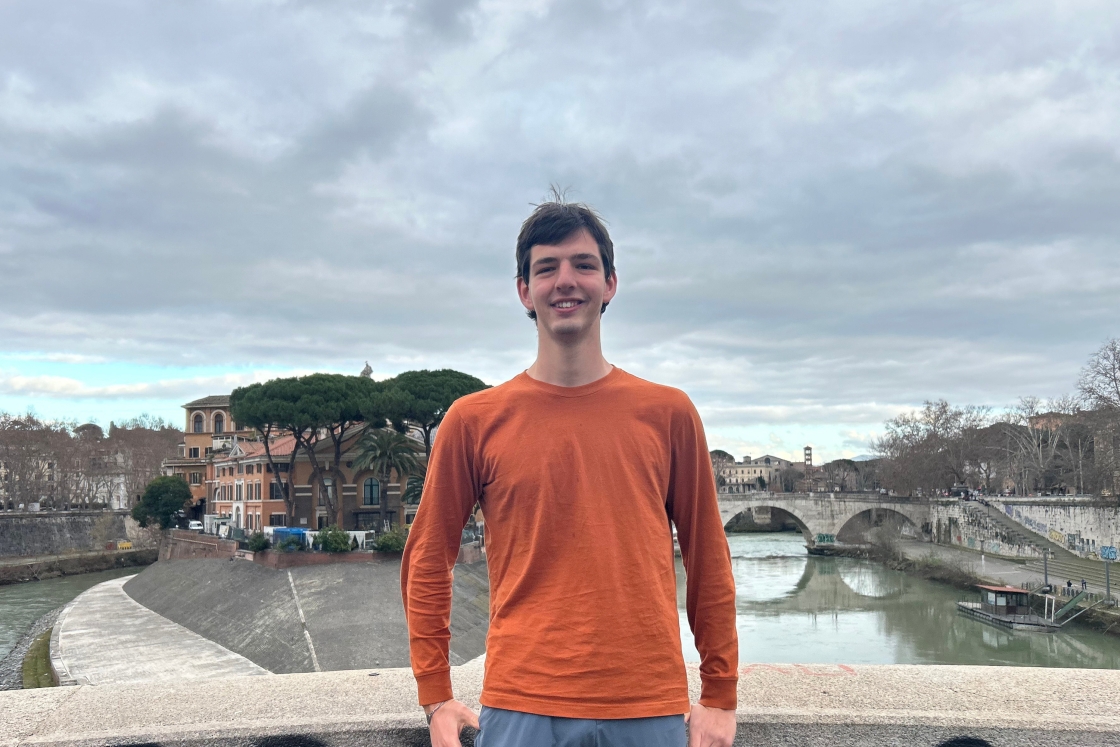Read the full story by Kimberly Slover, published in the Spring 2015 issue of Dartmouth Engineer Magazine.
Two years ago George Boateng ’16 created an abbreviated version of “ENGS 21: Introduction to Engineering” for high school students back home in Ghana. “Even before I took ENGS 21, the thing that blew my mind about this class was that students without advanced engineering classes could go through a design and innovation process and actually build solutions to real-life problems and start companies out of it,” Boateng says.
He started Project iSWEST (Innovating Solutions with Engineering, Science & Technology) and recruited six Ghanaian friends to help him run the program. The team pooled resources to offer a one-week pilot program for students in Ghana’s capital, Accra, during the summer of 2013.

George Boateng ’16, center, pictured with his iSWEST team members, brought Thayer School of Engineering’s signature introductory engineering course to students in Ghana. (Photo courtesy of George Boateng ’16)
The pilot was successful enough for Project iSWEST to receive funding from Thayer School of Engineering, Dartmouth’s Institute for Security, Technology and Society, and the William H. Neukom Institute for Computational Science for a four-week program in Ghana during the summer of 2014.
The extended program featured two weeks of workshops in electronics, robotics, and basic science, two weeks of innovation training, and a pitch day. According to Boateng, three teams of five students each developed simple solutions to local needs, such as a way to make cleaning louvered windows easy and safe. The participants even started a club at school to teach other students what they had learned.
“Our vision is to inspire an innovation revolution for youth across Ghana to create solutions to their communities’ problems,” says Boateng, an engineering major and computer science minor. “We want this to become part of the culture of Ghana.”

